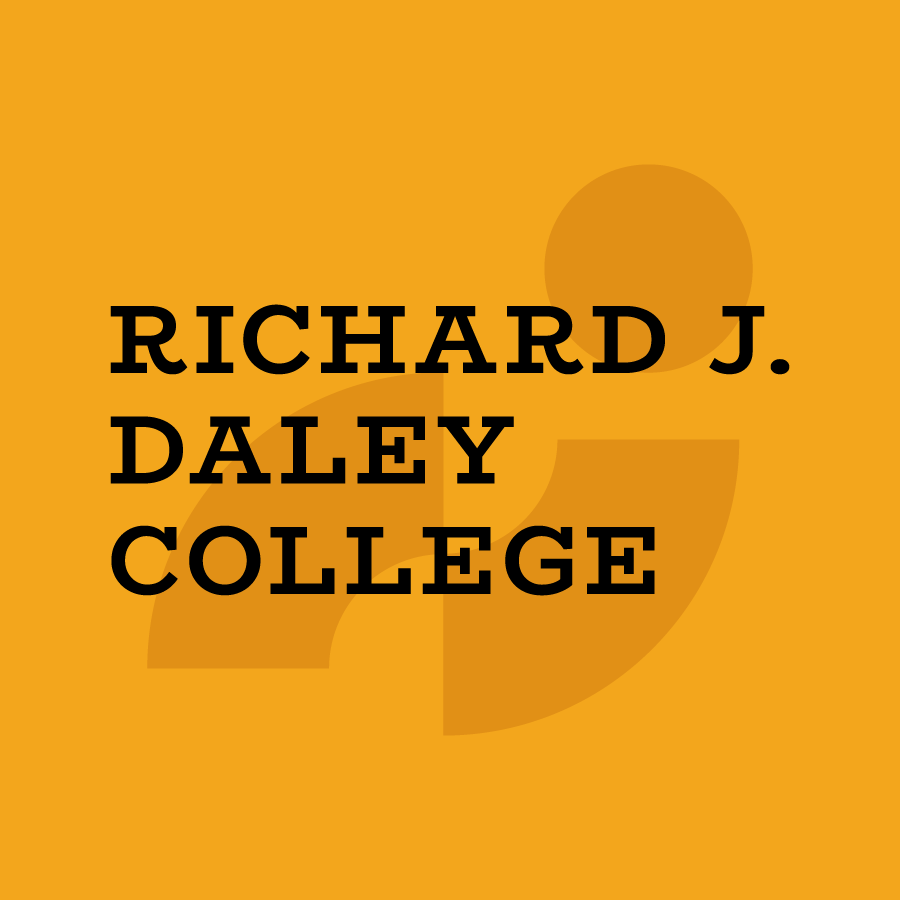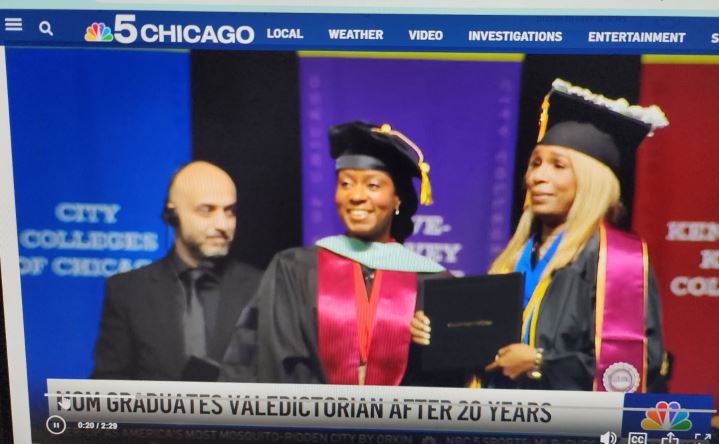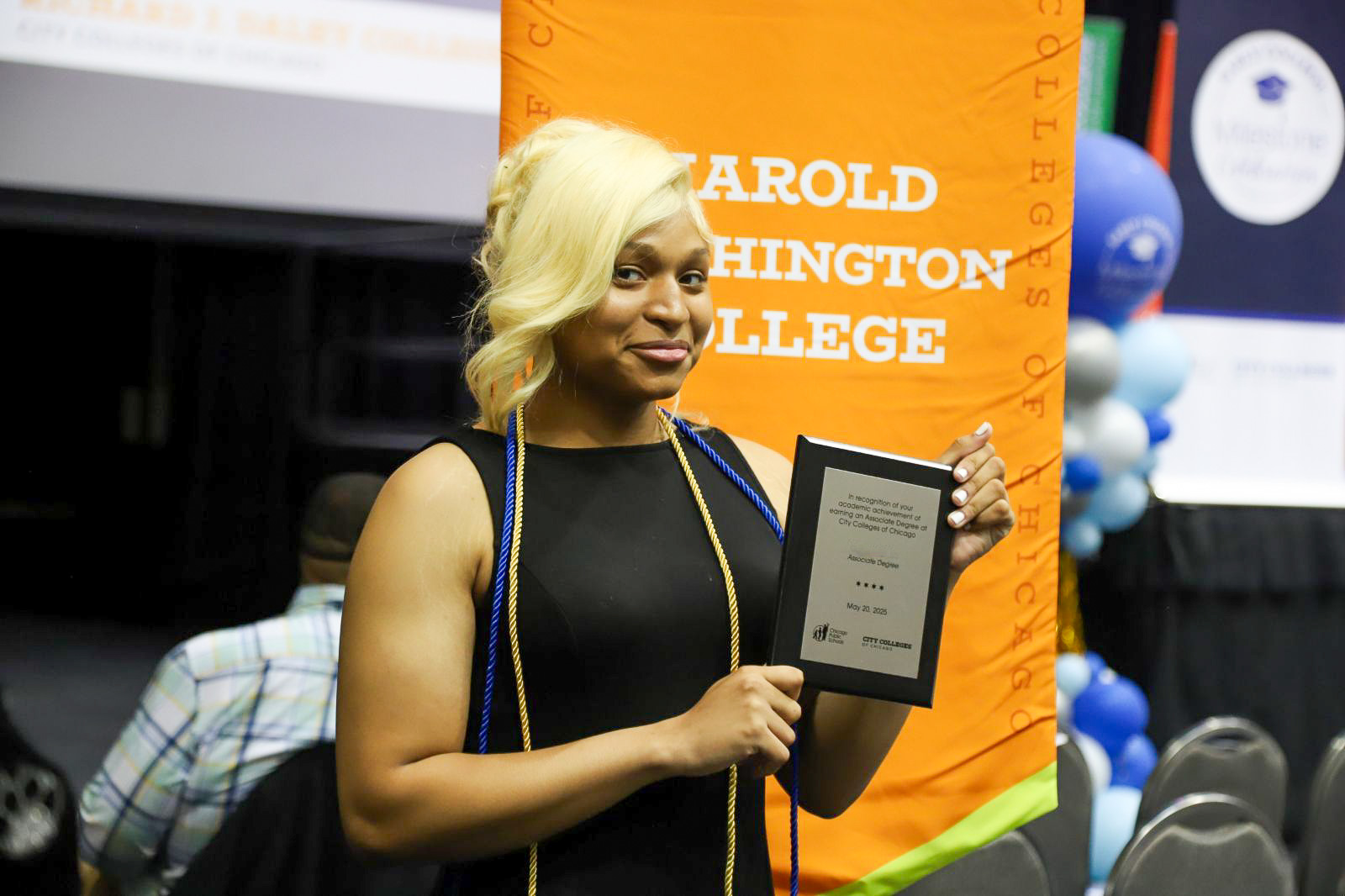On August 23, 2022, World Education Services announced 16 U.S. communities selected to join its Skilled Immigrant Integration program, including Chicago’s Richard J. Daley College. Daley College was selected, in part, for its creation and launch of the Welcome Back Center at Arturo Velasquez Institute.
The following press release was originally published by World Education Services on August 23, 2022.
World Education Services Announces 16 U.S. Communities Selected to Join Its Skilled Immigrant Integration Program
NEW YORK, Aug. 23, 2022 – World Education Services (WES) today announced the 16 communities selected to join the fifth cohort of its Skilled Immigrant Integration Program (SIIP). These sites represent a combination of new communities and SIIP network alumni that are committed to advancing the workforce inclusion of immigrants and refugees across the United States.
 Communities selected for the 2022–2023 SIIP cohort include Anchorage, Alaska; Brattleboro, Vermont; Chicago, Illinois; Dallas, Texas; Denver, Colorado; Eugene, Oregon; Lincoln, Nebraska; Louisville, Kentucky; New York, New York; Portland, Oregon; Seattle, Washington; South Bend, Indiana; Tulsa, Oklahoma; and the states of Colorado, Utah, and Virginia.
Communities selected for the 2022–2023 SIIP cohort include Anchorage, Alaska; Brattleboro, Vermont; Chicago, Illinois; Dallas, Texas; Denver, Colorado; Eugene, Oregon; Lincoln, Nebraska; Louisville, Kentucky; New York, New York; Portland, Oregon; Seattle, Washington; South Bend, Indiana; Tulsa, Oklahoma; and the states of Colorado, Utah, and Virginia.
At least two million college-educated immigrants and refugees are unemployed or underemployed in the U.S.; sixty percent hold credentials earned abroad, according to the Migration Policy Institute. This skill underutilization results in almost $40 billion in forgone annual earnings and $10 billion in unrealized federal, state, and local taxes yearly. Previous SIIP participants developed new frameworks, resources, and initiatives to address barriers to employment, increase funding for workforce development and adult education, and develop state and local networks that advance inclusion. The 2022–2023 SIIP initiative builds on the program’s success with the introduction of a model based on thematic groups.
Participants in this year’s program are divided into four subcohorts focused on the following themes: building career navigation tools and resources for internationally trained immigrants and refugees; advancing and retaining internationally skilled employees; connecting local workforce boards with untapped talent pools; and developing and expanding contextualized digital literacy programs.
The SIIP network now comprises 40 communities across the nation, from Alaska to Texas to Maine. Selected communities receive customized technical assistance from WES and its national partners, as well as access to a collaborative network of SIIP alumni who have identified tools and strategies needed to promote inclusive economies.
“The addition of these new communities will broaden and deepen the impact of the SIIP network, enabling immigrants and refugees to contribute more fully to state and local economies across the country,” said Katherine Gebremedhin, Director, State and Local Initiatives, Global Talent Bridge at WES. “Ensuring access to localized pathways can improve the livelihoods of immigrants and refugees by allowing them to fully use their skills, training, and experience to achieve professional success.”
To be selected for SIIP, communities must be part of a local, regional, or state network of stakeholders that includes immigrant- and refugee-led organizations and communities of color. They must also demonstrate commitment to and leadership of initiatives that foster the professional success of immigrants and refugees who have international education and experience.
“Across the U.S., government leaders and organizations that are part of SIIP are actively collaborating so that immigrants and refugees can put their skills and talents to work,” said WES CEO and Executive Director Esther Benjamin. “As the country faces a worsening labor shortage, the SIIP network will play an important role in engaging skilled immigrants and refugees to keep local economies and workforces strong and growing. The SIIP network is also deeply committed to building a diverse, inclusive society.”
###


 Communities selected for the 2022–2023 SIIP cohort include Anchorage, Alaska; Brattleboro, Vermont; Chicago, Illinois; Dallas, Texas; Denver, Colorado; Eugene, Oregon; Lincoln, Nebraska; Louisville, Kentucky; New York, New York; Portland, Oregon; Seattle, Washington; South Bend, Indiana; Tulsa, Oklahoma; and the states of Colorado, Utah, and Virginia.
Communities selected for the 2022–2023 SIIP cohort include Anchorage, Alaska; Brattleboro, Vermont; Chicago, Illinois; Dallas, Texas; Denver, Colorado; Eugene, Oregon; Lincoln, Nebraska; Louisville, Kentucky; New York, New York; Portland, Oregon; Seattle, Washington; South Bend, Indiana; Tulsa, Oklahoma; and the states of Colorado, Utah, and Virginia.


